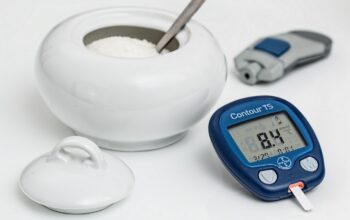Of all the ways to replace lost teeth, dental implants are by far the most attractive. Not only do they look and feel like natural teeth, but they also require very little maintenance, prevent bone loss, and let you preserve your bite force.
However as much as dental implants have a lot going for them, you should be aware that there are several key factors you need to weigh before you decide whether or not to get them.
Habits
There are certain habits that can affect the success of dental implants – chief among which being smoking. Because smoking restricts blood flow and impairs healing, smokers have an implant failure rate of up to 20%.
Other habits that can also affect the success of dental implants include excessive clenching of your teeth or other parafunction habits. For dental implants to be viable, these habits need to be dealt with first.
Jaw Bone Health
For implants to be a success the jaw bone they’re inserted into must be healthy. If there is any bone loss there may not be sufficient bone to support the implant – in which case it may need to be grafted from elsewhere.
Bone loss can be caused by several conditions, including osteoporosis or gum disease. Additionally after you lose a tooth the jawbone nearby will begin to deteriorate.
Gum Disease
Aside from the fact that gum disease can cause bone loss, it can also directly affect the success of dental implants. If you have gum disease an infection could develop near the implant that will result in its failure.
Because of the risk of infection, it is recommended that you have your gum disease treated before undergoing an implant procedure.
Medical Conditions
On top of the medical conditions listed above, there are others that can also cause dental implant failure. To be more specific any condition that can affect your body’s ability to heal could affect the success of your implant – and certain medications may as well.
Some of the more common medical conditions that you need to be aware of include diabetes, arthritis, autoimmune disease, and so on.
Oral Hygiene
In addition to the fact that poor oral hygiene can lead to gum disease and infections, it can also affect implants in other ways. Simply put you need to maintain your oral hygiene while taking extra care when brushing or flossing close to the implant area.
If you aren’t already using a soft-bristled toothbrush, it would be best to start. Brushing too hard can damage your gums, which in turn will affect new dental implants.
Cost
While it is true that implants are more attractive than other tooth replacements – they’re also more costly. The exact cost may vary, but dentures or dental bridges typically cost anywhere from $500 to $3,000 – whereas dental implants can cost anywhere from $6,000 to $30,000.
Unless money isn’t an issue, you should check on the cost of dental implants in advance – and also determine whether or not your dental plan or insurance will cover it.
Diet
A healthy and well-balanced diet can help the healing process – which is something to consider when getting implants. On top of that there’ll be certain types of foods you’ll want to avoid, such as anything excessively sweet, acidic, sticky, hard, or chewy.
In fact for the first few days after the implant procedure you will want to stick to soft foods that don’t require much chewing. Subsequently you can resume a more normal diet, but should avoid chewing near the area where the implant is located for a few weeks so that it heals better and food particles don’t get stuck there.
Conclusion
Be sure to consider all these factors carefully if you’re thinking about getting dental implants. It may help to also consult a periodontist to find out more about the specifics – especially if you have pre-existing medical conditions.




